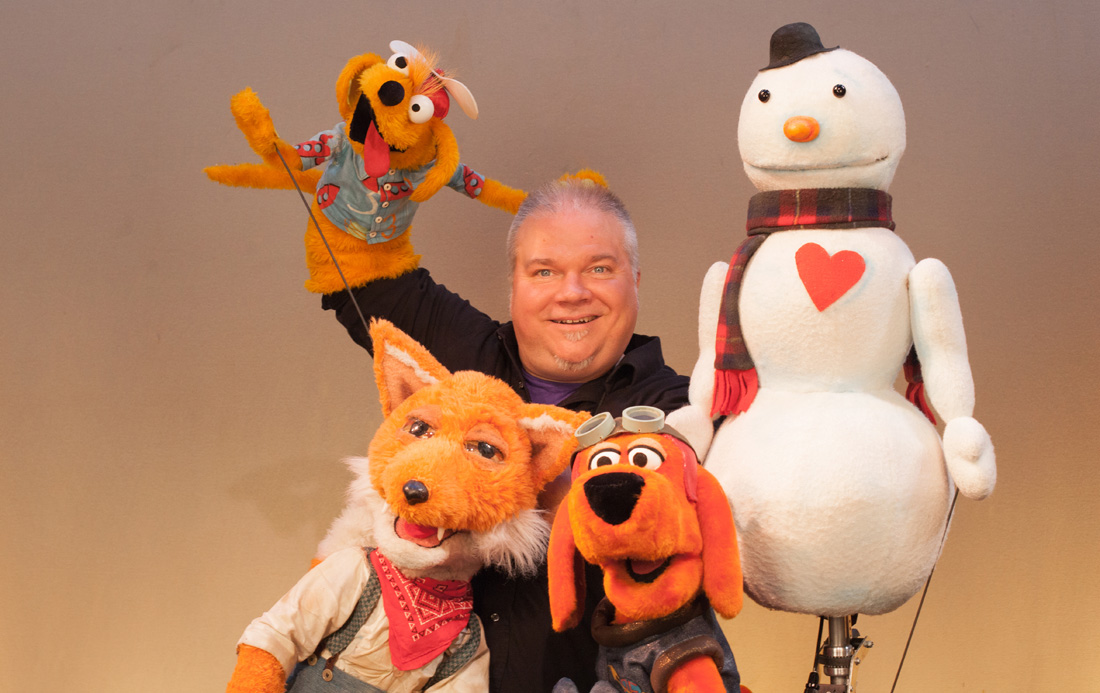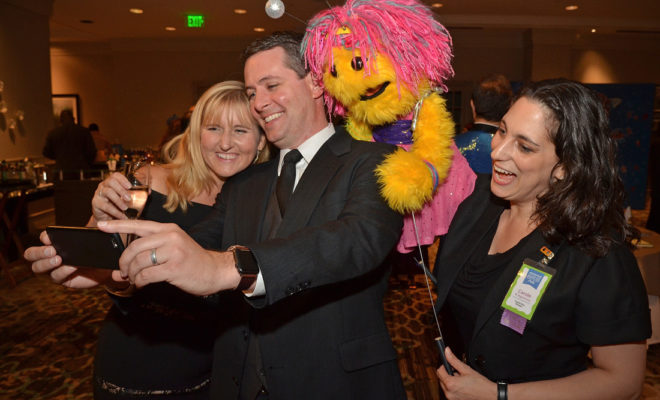Purpose In Puppetry

Puppeteer, actor, director, writer, musician and composer Dolph Amick’s artistic versatility defines his work at the Center for Puppetry Arts
It comes as no surprise that puppeteer Dolph Amick is a supremely animated speaker— he quite literally makes a living of talking with his hands. In casual conversation, he alternates between different voices, expressing himself through twirling fingers, exposed palms and dramatic gestures.
Although it seems natural now, Amick’s pathway into puppetry wasn’t something he predicted as a young man. He attended theater school in New York, and after subsequent years at a theater in a small Virginia town, a desire to return to big city life brought this classically trained actor to Atlanta two decades ago. He found work in Kaiser Permanente’s educational theater program, work that required the occasional use of puppets. His theatrical instincts, physical presence and musical abilities allowed him to shine in the niche—a combination of many artistic mediums. His director recommended Amick audition at the Center for Puppetry Arts, an Atlanta institution that’s been around since the iconic Jim Henson and Kermit the Frog cut the ribbon in 1978.
Amick followed his director’s advice and found himself in a role at the Center that demanded every skill he had, and he was instantly hooked. “One of the things that makes puppetry a welcome challenge is that nothing you know is going to be wasted. Every skill you have, you’re going to find a way to use it,” he says.
Amick has been at the theater now for more than 10 years, playing quintessential roles that range from the Cat in the Hat to Yukon Cornelius in Rudolph the Red-Nosed Reindeer. In many productions, he portrays a whole fleet of characters, alternating between voices at a mind-boggling speed, sometimes even having a conversation with himself. He finds the ceaseless challenges of puppetry inspiring. “Every single show, [the directors and producers are] going to hand you a new tool, essentially,” he says. “So every show there’s a process of going, ‘How am I going to convey what I want to convey with this new thing they’ve put in my hand?’”
Being a puppeteer has its perks for an actor who enjoys building a wide repertoire of characters. “If I were just relying on my look, my body, [how] I’m castable as a human, that’s a much more limited range than here, where they can be like, ‘Dolph, you’re playing a teapot, an old woman and 14 elves,’” he says.
Amick hasn’t just become masterful as a puppeteer. He’s also contributed writing, sound design, musical compositions and direction to productions at the theater. This versatility has warranted significant attention from Atlanta’s theater community at large. After being nominated many times, he took home the city’s most prestigious honor for professional theater, a Suzi Bass award, for his role as music director in the Center’s 2017 production of Old MacDonald’s Farm. Outside of the Center, Amick plays in a Renaissance-themed band called Three Quarter Ale and an ironic, middle-aged punk band called The Spanks.
Amick is proud to see the Center engage more with the theater scene in town, and he takes the opportunity to demonstrate the essential purpose of the craft seriously. “You always have to bring not just energy, but sincerity. Kids really respond to a good, sincere performance and a good story.”
This spring, you can find Amick in productions of The Cat in the Hat and Click, Clack, Moo: Cows That Type. puppet.org
STORY AND PHOTO: Jodi Cash













